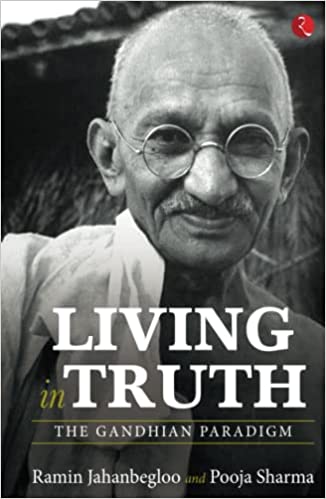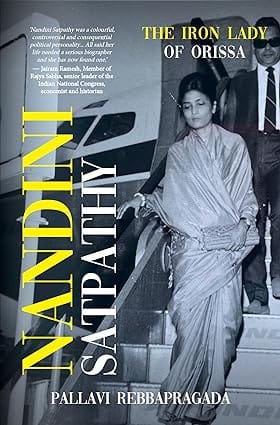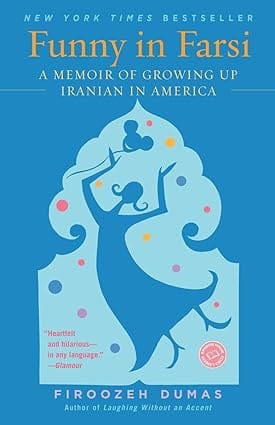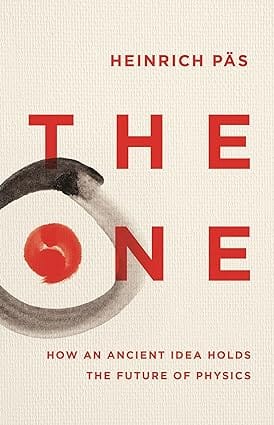WELCOME TO MIDLAND BOOK SHOP!
SHOP FOR
- Contemporary Fiction
- Contemporary Fiction
- Children
- Children
- Comics & Graphic Novels
- Comics & Graphic Novels
- Non-Fiction
- Non-Fiction
- Fiction
- Fiction
Shop No.20, Aurobindo Palace Market, Hauz Khas, Near Church +91 9818282497 | 011 26867121 110016 New Delhi IN
Midland The Book Shop ™
Shop No.20, Aurobindo Palace Market, Hauz Khas, Near Church +91 9818282497 | 011 26867121 New Delhi, IN
+919871604786 https://www.midlandbookshop.com/s/607fe93d7eafcac1f2c73ea4/6468e33c3c35585403eee048/without-tag-line-480x480.png" [email protected]9789355207821 6332e4eda74c815a492e7495 Living In Truth The Gandhian Paradigm https://www.midlandbookshop.com/s/607fe93d7eafcac1f2c73ea4/6332e4efa74c815a492e74e1/410x4-iqskl-_sx324_bo1-204-203-200_.jpg 9789355207821
Mahatma Gandhi’s relevance to India and the world is much more than ever before.
Driving this urgent need for bringing back Gandhi in our lives are two main factors: firstly, contemporary politics lacks moral leaders, and, secondly, democracies around the world have abandoned the empowerment of the weakest in favour of the economic and political supremacy and hegemony of the strongest. Gandhi’s view of democracy was exactly the opposite. He said, ‘The weakest should have the same opportunity as the strongest. That can never happen except through non-violence.’ The Gandhian paradigm is based on truthfulness and non-violence and establishing an essential relationship between social awareness and common humanity. For him, politics as the art of organizing the society was a path to self-realization and autonomy of the individual and the community.
Gandhi usually spoke of truth in terms of self-experience, rather than universal cognition. He said, ‘Truth resides in every human heart, and one has to search for it there and to be guided by truth as one sees it.’ Gandhi considered the search for truth as an integral part of his non-violence and as a vital component of the relationship of the private to the public. Living in Truth is therefore an effort to go beyond (para) of our ‘everydayness’, to show (deiknynai) the relationship between the ideal and the real. It is a manner of raising the ethical aspiration of citizens and the non-violent essence of the government.
Driving this urgent need for bringing back Gandhi in our lives are two main factors: firstly, contemporary politics lacks moral leaders, and, secondly, democracies around the world have abandoned the empowerment of the weakest in favour of the economic and political supremacy and hegemony of the strongest. Gandhi’s view of democracy was exactly the opposite. He said, ‘The weakest should have the same opportunity as the strongest. That can never happen except through non-violence.’ The Gandhian paradigm is based on truthfulness and non-violence and establishing an essential relationship between social awareness and common humanity. For him, politics as the art of organizing the society was a path to self-realization and autonomy of the individual and the community.
Gandhi usually spoke of truth in terms of self-experience, rather than universal cognition. He said, ‘Truth resides in every human heart, and one has to search for it there and to be guided by truth as one sees it.’ Gandhi considered the search for truth as an integral part of his non-violence and as a vital component of the relationship of the private to the public. Living in Truth is therefore an effort to go beyond (para) of our ‘everydayness’, to show (deiknynai) the relationship between the ideal and the real. It is a manner of raising the ethical aspiration of citizens and the non-violent essence of the government.
Review
In this era where inequality, economic and ecological indifference are widespread, Living in Truth articulates an alternative vision of living and being together.' —Uday Singh Mehta, Professor of Political Philosophy, Center of City University, New York
'This book is an extremely valuable contribution to the Gandhian mode of philosophical thinking based fundamentally on truth, non-violence and self-examination.' —Pulin Nayak, Former Director and Professor, Delhi School of Economics
'This book is an extremely valuable contribution to the Gandhian mode of philosophical thinking based fundamentally on truth, non-violence and self-examination.' —Pulin Nayak, Former Director and Professor, Delhi School of Economics
About the Author
Ramin Jahanbegloo is an Iranian-Canadian political philosopher. He is presently the executive director of the Mahatma Gandhi Centre for Peace Studies and the vice-dean of the School of Law at Jindal Global University, Delhi. He is the author of thirty-two books in English, French and Persian, including: Gandhi: Aux Sources de la Nonviolence, The Gandhian Moment, Introduction to Nonviolence, The Disobedient Indian: Towards a Gandhian Philosophy of Dissent, The Global Gandhi and, more recently, Mahatma Gandhi: A Nonviolent Perspective on Peace.
Pooja Sharma is an associate professor in the Department of Economics, Daulat Ram College, University of Delhi. An alumnus of Miranda House, she completed her master’s degree in economics from Delhi School of Economics, followed by MPhil and PhD from Jawaharlal Nehru University (JNU) and PhD fellowship at the University of Agder in Norway. An avid Gandhian, she has worked extensively on issues related to energy security, energy transition, renewable energy, human capital and the Gandhian perspective on energy transition.
Pooja Sharma is an associate professor in the Department of Economics, Daulat Ram College, University of Delhi. An alumnus of Miranda House, she completed her master’s degree in economics from Delhi School of Economics, followed by MPhil and PhD from Jawaharlal Nehru University (JNU) and PhD fellowship at the University of Agder in Norway. An avid Gandhian, she has worked extensively on issues related to energy security, energy transition, renewable energy, human capital and the Gandhian perspective on energy transition.
in stockINR 316
1 1
Email ID already exists!
Your Current password is incorrect
Password Updated Successfully
Thanks for your Feedback
- Home
- Non-Fiction
- Living In Truth The Gandhian Paradigm
Living In Truth The Gandhian Paradigm
ISBN: 9789355207821
₹316
₹395 (20% OFF)SIZE GUIDE
Sold By: Hauz Khas - Aurobindo Market
Details
- ISBN: 9789355207821
- Author: Ramin Jahanbegloo Pooja Sharma
- Publisher: Rupa
- Pages: 160
- Format: Hardback
Book Description
Mahatma Gandhi’s relevance to India and the world is much more than ever before.
Driving this urgent need for bringing back Gandhi in our lives are two main factors: firstly, contemporary politics lacks moral leaders, and, secondly, democracies around the world have abandoned the empowerment of the weakest in favour of the economic and political supremacy and hegemony of the strongest. Gandhi’s view of democracy was exactly the opposite. He said, ‘The weakest should have the same opportunity as the strongest. That can never happen except through non-violence.’ The Gandhian paradigm is based on truthfulness and non-violence and establishing an essential relationship between social awareness and common humanity. For him, politics as the art of organizing the society was a path to self-realization and autonomy of the individual and the community.
Gandhi usually spoke of truth in terms of self-experience, rather than universal cognition. He said, ‘Truth resides in every human heart, and one has to search for it there and to be guided by truth as one sees it.’ Gandhi considered the search for truth as an integral part of his non-violence and as a vital component of the relationship of the private to the public. Living in Truth is therefore an effort to go beyond (para) of our ‘everydayness’, to show (deiknynai) the relationship between the ideal and the real. It is a manner of raising the ethical aspiration of citizens and the non-violent essence of the government.
Driving this urgent need for bringing back Gandhi in our lives are two main factors: firstly, contemporary politics lacks moral leaders, and, secondly, democracies around the world have abandoned the empowerment of the weakest in favour of the economic and political supremacy and hegemony of the strongest. Gandhi’s view of democracy was exactly the opposite. He said, ‘The weakest should have the same opportunity as the strongest. That can never happen except through non-violence.’ The Gandhian paradigm is based on truthfulness and non-violence and establishing an essential relationship between social awareness and common humanity. For him, politics as the art of organizing the society was a path to self-realization and autonomy of the individual and the community.
Gandhi usually spoke of truth in terms of self-experience, rather than universal cognition. He said, ‘Truth resides in every human heart, and one has to search for it there and to be guided by truth as one sees it.’ Gandhi considered the search for truth as an integral part of his non-violence and as a vital component of the relationship of the private to the public. Living in Truth is therefore an effort to go beyond (para) of our ‘everydayness’, to show (deiknynai) the relationship between the ideal and the real. It is a manner of raising the ethical aspiration of citizens and the non-violent essence of the government.
Review
In this era where inequality, economic and ecological indifference are widespread, Living in Truth articulates an alternative vision of living and being together.' —Uday Singh Mehta, Professor of Political Philosophy, Center of City University, New York
'This book is an extremely valuable contribution to the Gandhian mode of philosophical thinking based fundamentally on truth, non-violence and self-examination.' —Pulin Nayak, Former Director and Professor, Delhi School of Economics
'This book is an extremely valuable contribution to the Gandhian mode of philosophical thinking based fundamentally on truth, non-violence and self-examination.' —Pulin Nayak, Former Director and Professor, Delhi School of Economics
About the Author
Ramin Jahanbegloo is an Iranian-Canadian political philosopher. He is presently the executive director of the Mahatma Gandhi Centre for Peace Studies and the vice-dean of the School of Law at Jindal Global University, Delhi. He is the author of thirty-two books in English, French and Persian, including: Gandhi: Aux Sources de la Nonviolence, The Gandhian Moment, Introduction to Nonviolence, The Disobedient Indian: Towards a Gandhian Philosophy of Dissent, The Global Gandhi and, more recently, Mahatma Gandhi: A Nonviolent Perspective on Peace.
Pooja Sharma is an associate professor in the Department of Economics, Daulat Ram College, University of Delhi. An alumnus of Miranda House, she completed her master’s degree in economics from Delhi School of Economics, followed by MPhil and PhD from Jawaharlal Nehru University (JNU) and PhD fellowship at the University of Agder in Norway. An avid Gandhian, she has worked extensively on issues related to energy security, energy transition, renewable energy, human capital and the Gandhian perspective on energy transition.
Pooja Sharma is an associate professor in the Department of Economics, Daulat Ram College, University of Delhi. An alumnus of Miranda House, she completed her master’s degree in economics from Delhi School of Economics, followed by MPhil and PhD from Jawaharlal Nehru University (JNU) and PhD fellowship at the University of Agder in Norway. An avid Gandhian, she has worked extensively on issues related to energy security, energy transition, renewable energy, human capital and the Gandhian perspective on energy transition.
User reviews
NEWSLETTER
Subscribe to get Email Updates!
Thanks for subscribing.
Your response has been recorded.

India's Iconic & Independent Book Store offering a vast selection of books across a variety of genres Since 1978.
"We Believe In The Power of Books" Our mission is to make books accessible to everyone, and to cultivate a culture of reading and learning. We strive to provide a wide range of books, from classic literature, sci-fi and fantasy, to graphic novels, biographies and self-help books, so that everyone can find something to read.
Whether you’re looking for your next great read, a gift for someone special, or just browsing, Midland is here to make your book-buying experience easy and enjoyable.
We are shipping pan India and across the world.
For Bulk Order / Corporate Gifting
 +91 9818282497 |
+91 9818282497 |  [email protected]
[email protected]
Click To Know More
INFORMATION
ACCOUNT
ADDRESS
Midland Book Shop - Hauz Khas
Shop No.20, Aurobindo Palace Market, Near Church, New Delhi
Shop No.20, Aurobindo Palace Market, Near Church, New Delhi













